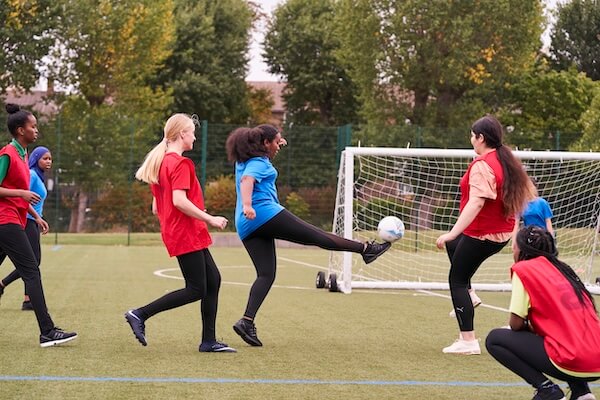
We all know that regular exercise is good for our physical health, but did you know it can also benefit your brain? A recent study by Penn State College of Medicine has uncovered some exciting findings about how everyday physical activities—like walking the dog or playing with your kids—can improve brain health in the short term, particularly for middle-aged adults.
What the Study Found
The research aimed to understand if smaller, everyday bursts of physical activity could lead to immediate improvements in cognitive function. Instead of long gym sessions or intense workouts, the study focused on typical daily activities. Participants were asked to report their physical activity multiple times a day, while also taking brief cognitive tests to assess their brain function.
The results were remarkable. Participants who engaged in physical activity in the 3.5 hours leading up to their cognitive assessments showed significant improvements in cognitive performance. Specifically, their processing speed (how quickly their brains could process information) improved to the equivalent of being 4 years younger.
What’s even more interesting is that these benefits weren’t limited to intense exercise. Whether the activity was light (like walking or doing chores) or moderate-to-vigorous (like jogging or cycling), the positive effects on cognitive function were still noticeable.
Why Does This Matter?
This research is significant because it highlights that even small, everyday movements can make a big difference to brain health. In the past, we often thought that cognitive benefits only came from intense or structured physical activity, like running or hitting the gym. But this study shows that even moderate or light physical activity—things like going for a walk, playing with your kids, or taking the stairs—can help improve brain function right away.
The improvements seen in this study were in processing speed, which is a key component of cognitive function. Faster processing speeds are linked to better memory, problem-solving skills, and overall mental sharpness. Essentially, engaging in regular physical activity, even in short bursts, can help keep your brain in tip-top shape.
What Does This Mean for You?
The key takeaway here is that staying active doesn’t require hours of intense exercise. Everyday activities—like walking, gardening, or doing housework—can provide your brain with an immediate boost. And, importantly, these small moments of activity could add up over time, contributing to long-term cognitive health and potentially reducing the risk of cognitive decline as we age.
This study also suggests that people who are already active in their day-to-day lives might experience even more pronounced cognitive benefits. So, if you’re someone who tends to stay active, even with casual movements throughout the day, you’re already giving your brain a healthy boost.
What’s Next?
These findings open the door for further research into how everyday physical activity can be used as a simple, accessible way to promote brain health. For those of us looking to protect our cognitive function as we age, this study offers a reminder that we don’t need to wait for a gym session to boost brain power—everyday activities can do the trick.
The Bottom Line
Incorporating more physical activity into your day doesn’t have to mean committing to strenuous exercise. Simple activities like walking, stretching, or even doing household chores can offer immediate benefits for your brain. So, next time you go for a stroll or play with your kids, know that you’re not just improving your body—you’re giving your brain a workout too.






